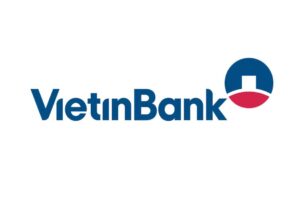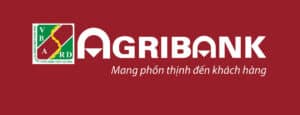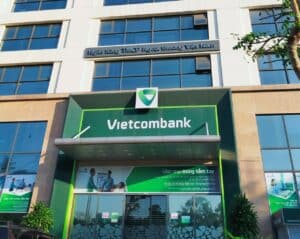Here are the 10 best banks in Vietnam.
Banking is one of five promising economic sectors in Vietnam in 2021, according to the VietnamCredit Country Report 2021.
Positive profits in the banking sector in 2020 were generated by a decrease in lending revenue, an increase in income from non-credit activities such as bancassurance, digital banking, foreign currency trading, and online payment services, flexible operating costs, particularly the reduction of provisioning in accordance with Circular 01/NHNN, and, most importantly, a decline in lending interest rates that was not in line with the deposit interest rate.
If you want to invest as an expat or high-net-worth individual, which is what I specialize in, you can email me (advice@adamfayed.com) or use WhatsApp (+44-7393-450-837).
We recommend that most wealthy locals and expats invest offshore despite this list, and we can help with that.
10 BEST BANKS IN VIETNAM
The Vietnamese bank ranking presented below was created by VietnamCredit specialists based on financial factors such as gross profit margin (GPM), owner’s equity, and total assets, as well as non-financial characteristics such as reputation and position in the banking sector.
1. Joint Stock Commercial Bank For Foreign Trade Of Vietnam (Vietcombank)
On April 1, 1963, the Joint Stock Commercial Bank for Foreign Trade of Vietnam (Vietcombank) was founded. Foreign Exchange Department was its previous name (under the State Bank of Vietnam). The government has chosen this unit to test equitization in the banking industry for the first time. Vietcombank became a joint-stock commercial bank on June 2, 2008. The stock market formally listed Vietcombank shares (VCB) on June 30, 2009.
Vietcombank is presently one of Vietnam’s major commercial banks after more than a half-century of business. It now has over 560 local and international branches, transaction offices, and representative offices.
Despite the challenges imposed by the Covid-19 pandemic, Vietcombank’s commercial activities were still operational in 2020. This bank’s total assets surpassed VND 1.3 million billion, an 8.5 percent increase over 2019, while its consolidated earnings above VND 23 trillion (about 1 billion USD), an increase of 8.5 percent over 2019. This enables Vietcombank to maintain its status as the most efficient bank in Vietnam. It is the only bank in Vietnam to be in the top 200 banks in the world in terms of profit scale.
2. Vietnam Joint Stock Commercial Bank For Industry And Trade (VietinBank)
After being split from the State Bank of Vietnam, VietinBank formally began operations on March 26, 1988. VietinBank now operates 100,000 branches and transaction offices around the country. Its charter capital was at 37,234,045,560,000 VND as of December 31, 2018.
The business performance of VietinBank in 2020 met and beyond expectations. Non-interest revenue climbed by 35.2 percent over 2019, while profit from capital business increased by 70 percent over 2019, and the NPL ratio was less than 1%.
The bank’s individual profit before tax amounted to VND 16,450 billion. Profitability ratios (ROE and ROA) reached 16.8 percent and 1.3 percent, respectively, which is a significant gain over 2019.

3. Vietnam Technological and Commercial Joint Stock Bank (Techcombank)
Vietnam Technological and Commercial Joint Stock Bank was founded in 1993 with VND 20 billion in charter capital. The headquarters of Techcombank can be found at 191 Ba Trieu Street in Hanoi.
Techcombank’s pre-tax profit was VND 15.8 trillion in 2020, and revenue was VND 27 trillion, increasing 23.1 percent and 28.4 percent, respectively, from the previous year. This bank also maintained its position as the leader in the Vietnamese banking sector in terms of current account saving account (CASA) with 46.1 percent and return on assets (ROA) with 3.1 percent.
4. Joint Stock Commercial Bank for Investment and Development of Vietnam (BIDV)
On April 26, 1957, the Joint Stock Commercial Bank for Investment and Development of Vietnam (BIDV) was founded as the Bank for Construction of Vietnam. BIDV was effectively equitized and legally turned into Joint Stock Commercial Bank for Investment and Development of Vietnam on May 1, 2012, after various revisions (BIDV).
BIDV’s total assets have reached VND 1.49 million billion as of December 31, 2020, representing an average annual growth rate of 10.4 percent between 2016 and 2020.
This bank’s commercial segment profit before tax reached VND 8,515 billion in 2020, while the combined pre-tax profit totaled VND 9,017 billion. Profit in 2020 would be lower than in 2019 since BIDV cut its income by Vietnam than VND 6,400 billion to implement lower interest rates, debt restructuring, and exclude interest and fees to help enterprises and people.
5. Military Joint Stock Commercial Bank (MBBank)
Military Joint Stock Commercial Bank (MBBank) is a subsidiary of the Ministry of National Defense that was created in 1994. The charter capital of the bank is VND 21,605 trillion.
MB’s profit in 2020 was VND 10,688 billion, up 6% from 2019 and exceeding 24 percent of the year plan due to excellent development in all business operations.
By the end of 2020, MB’s total assets will have reached almost VND 495 trillion, rising to 20% from the start of the year. During the year, client deposits climbed by 14% to VND 310,960 billion, while issuance of precious documents increased by 94% to VND 50,923 billion.
Non-performing loans at MB had declined as of December 31, 2020, while the absolute value of NPLs had climbed by 12% to VND 3,248 billion. The NPL coverage ratio, in particular, was 134 percent.
6. Vietnam Prosperity Joint Stock Commercial Bank (VP Bank)
On August 12, 1993, Vietnam Prosperity Joint Stock Commercial Bank was founded. After nearly 30 years of operation, VPBank has expanded its charter capital over VND 25,299,679,660,000.
According to the bank’s financial statement for 2020, total assets exceeded VND 419 trillion, a rise of more than 11% over 2019. Total combined outstanding loans to clients surpassed VND 320 trillion, a 19% increase.
The risk management of VP Bank is highly plausible, as its NPLs were effectively controlled, with a 2.9 percent NPL rate at the end of 2020.
Despite the detrimental effects of the COVID-19 pandemic, VP Bank’s 2020 consolidated income exceeded VND39 trillion, an increase of 7.4 percent. Consolidated pre-tax profit exceeded VND13 trillion, accounting for 127.5 percent of the objective laid forth at the start of the year and growing by more than 26 percent over 2019.
7. Vietnam Agricultural Development Bank (Agribank)
Agribank was founded on March 26, 1988. Initially, the bank was known as the Vietnam Agricultural Development Bank. The bank was renamed Agricultural Bank of Vietnam at the end of 1990. It was renamed Vietnam Bank For Agriculture and Rural Development in 1996.
Agribank’s total assets will exceed VND 1.57 million billion by 2020. The loan growth rate at Agribank climbed by 7.8 percent, while net interest revenue reached VND 43,660 billion, the highest in the banking system.
Agribank’s pre-tax earnings for the year totaled VND 13,203 billion, a 5.5 percent decrease from the previous year.

8. Asia Commercial Bank (ACB)
The Asia Commercial Joint Stock Bank (ACB) began operations on June 4, 1993.
ACB’s pre-tax profit in 2020 was VND 9,596 billion, a 27.7 percent increase over 2019. Profit from trading securities climbed by 121 percent, reaching VND 166 billion; profit from purchasing and selling investment securities rose by 13.5 times, reaching VND 732 billion; and revenue from foreign exchange operations increased by 60 percent, reaching VND 687 billion.
The total assets of ACB reached VND 441,530 billion as of December 31, 2020, representing a 15.1% growth over the previous year’s conclusion. NPLs at the bank were VND 1,840 billion, a 27% increase from the start of the year. The bad debt-to-overseas-loan ratio climbed from 0.54 percent to 0.6 percent.
9. Tien Phong Commercial Joint Stock Bank (TPBank)
TPBank was founded on May 5, 2008, by important stockholders including FPT Joint Stock Company, DOJI Jewelry Group Joint Stock Company, Vietnam Reinsurance Corporation, International Finance Company, and SBI Ven Holding Pte. Ltd., Singapore.
The total assets of TBBank reached VND 206,316 billion in 2020, gaining 24.47 percent from 2019 and exceeding 14 percent of the year’s target. Total deposits reached VND 184,953 billion, a 25.15 percent increase over the previous year, while outstanding loans also increased. In 2020, TPBank’s overall operating revenue was VND 10,368 billion, a 22.4 percent increase over 2019.
10. Saigon – Hanoi Commercial Joint Stock Bank (SHB)
Formerly known as Nhon Ai Rural Commercial Joint Stock Bank, the Saigon – Hanoi Commercial Joint Stock Bank (SHB), was founded in Can Tho on November 13, 1993. In 2006, Nhon Ai Rural Commercial Joint Stock Bank was restructured into Urban Commercial Joint Stock Bank and rebranded as Saigon – Hanoi Commercial Joint Stock Bank (SHB).
The total assets of SHB reached VND 412.9 trillion at the end of 2020, a 13.1 percent rise from the end of 2019. Its shareholders’ equity amounted to VND 24,393 billion, while its charter capital totaled VND 17,558 billion.
SHB’s profit before tax in 2020 was VND 3,412 billion, representing 104 percent of the year’s target and an increase of 12.8 percent over the previous year. Return on equity (ROE) was 15.9 percent, while NIM was 2.8 percent, up 0.8 percent from 2019.
Conclusion
Despite the effect of the Covid-19 pandemic, the banking industry saw strong growth and met its expectations in 2020. For instance, the financial results for the 4th quarter of 2020 of 27 banks revealed a 13.7 percent rise in profit over the previous year. Choose only the best banks in Vietnam if you are planning to put your money in Vietnam.
Pained by financial indecision?

Adam is an internationally recognised author on financial matters with over 830million answer views on Quora, a widely sold book on Amazon, and a contributor on Forbes.



